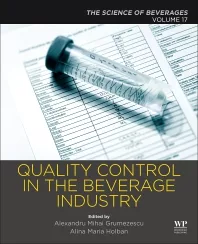Operations Perspective
Automation adoption impacts staffing challenge for beverage operations
Changes to materials, equipment additional factors in staffing needs
The current and ongoing technological developments in the beverage arena have created a real time challenge for producers and distributors. Although automated and/or computerized systems and multi-tasked production configurations have in most cases resulted in improved efficiency, productivity, time savings and cost effectiveness, technology in any form still requires humans to perform the tasks and activities involved with these developments.
From an operations perspective, the important factors that enter the equation are changed operating conditions and the profiles of workers necessary to adequately perform under a different environment. The condition changes usually involve machinery and materials with labor adjustments being made to manage the changes. That raises the questions: what is complexity of change? Do existing workers have the needed skill levels? How many workers are necessary? Are there related problems of availability and procurement?
Review of the conditions can emphasize the staffing challenge. When addressing materials, container transition from glass to PET will bring changes in production and handling equipment. Closures have advanced from crowns to twist caps, metal to plastic, solid lids to pop tops, which required new or different equipment. Package wraps have moved from board to plastic and shrink film with different equipment capability. Beverage cases became plastic instead of wood now with a washing operation. Included in these material impacts are PET self-manufacture and aseptic-filling operations that require workers with specific and different skill levels.
As materials change, the type, speed and functional capability of equipment normally are modified or replaced. This presents a challenge in searching and selecting operators, attendants or mechanics to operate the beverage processing and packaging lines. From an engineering viewpoint, personnel assigned to various operations actually perform as operators, attendants or mechanics depending on the line configuration. Therefore, capability, skill levels, training and experience make up a serious criteria for eventual search and selection of qualified people. In many situations, machinery manufacturers provide training to guarantee proper operation and performance of their equipment and validate any warranties that might have been put into effect.
The constant change syndrome (CCS) also remains ever present in beverage personnel selection. As just described, because materials, machinery and systems/processes are constantly changing with improvements, beverage producers are challenged because the operating conditions are demanding more and differently profiled workers.
The significant factors driving the staffing challenge are not always on the table, but should be addressed in a comprehensive plan that outlines a realistic, logical and applicable approach designed to address the issues that make staffing an ongoing challenge.
Although the issues are generally the same in most geographic areas, there are differences in scope, complexity, availability, demographics, population density and the economic environment that comprise each plant’s operating conditions. How do these condition demands impact personnel? The staffing function is intense, complex and requires in-depth knowledge and experience of short- and long-term needs for each defined operating situation.
The personnel availability, procurement and especially training for the entire supply chain activity requires constant management and policy support. It also is necessary and mandatory for the futuristic enterprise in a highly competitive beverage arena — forever.
Looking for a reprint of this article?
From high-res PDFs to custom plaques, order your copy today!




